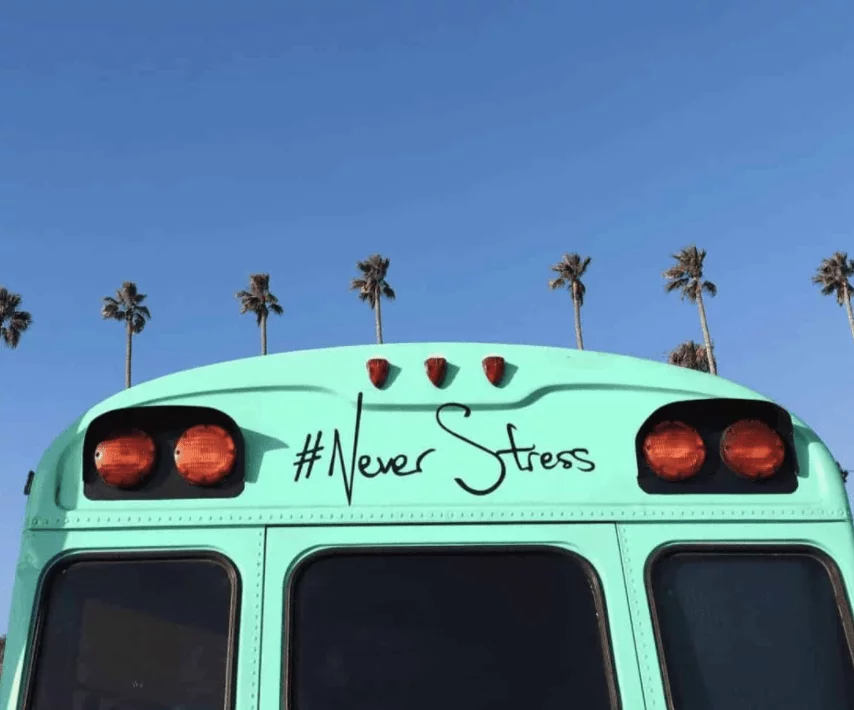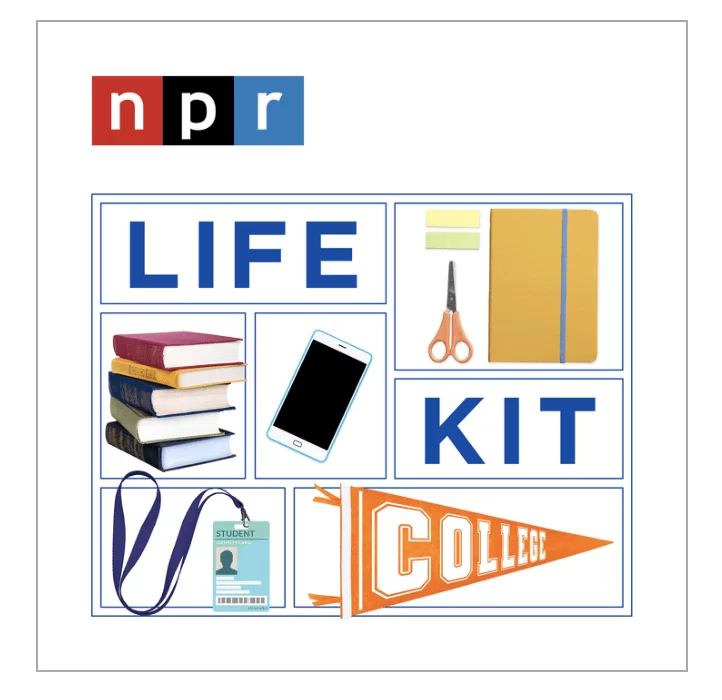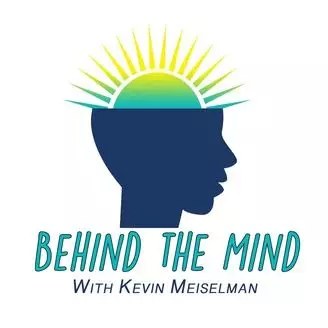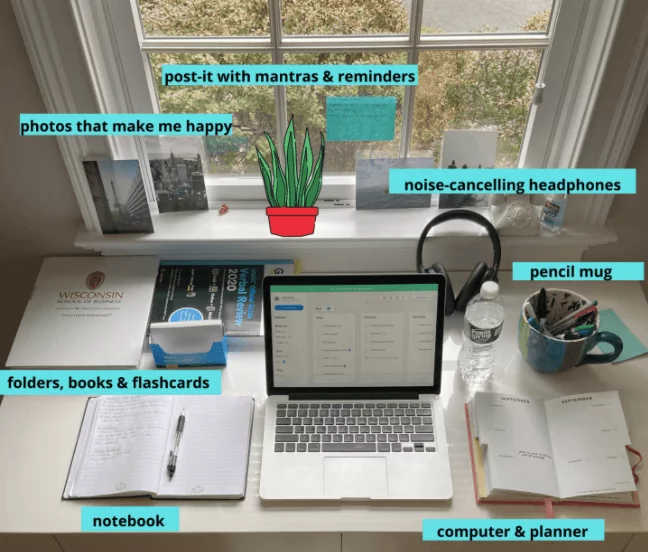It’s no secret that climate change is a legitimate and serious issue plaguing the world as we speak. It’s also no secret that consumerism is on the rise, with people across the globe continuing to purchase products to help them live and enjoy their everyday lives. While saving the environment won’t come from simply purchasing eco-friendly and sustainable products, it certainly is a start to getting on the right track. So, to help you contribute to protecting our environment, here are some great brands to shop this back to school season that are the perfect combination of trendy, comfy, and sustainable.
Nothing says hello to a new school year like some new clothes, especially loungewear, given the fact that most of us are pretty much stuck at home. Here are some great brands you can get comfy with while you bounce from one Zoom class to another.
Alternative Apparel is great for the basics such as t-shirts, cozy sweatshirts, and sweatpants. They have lines for both men and women, making it a one-stop-shop for anyone in your fam! Their clothing is made from materials such as heavyweight recycled cotton, 100% recycled polyester, and other organic ingredients that are “a better choice for your skin and for the environment”. PLUS: get 20% off your first purchase when you shop online!
Pact is another brand that boasts its sustainable trends. Not only is everything they sell made with organic cotton, but their products are also fair trade, meaning the company’s business practices support putting an end to injustices such as poverty in third world countries and environmental degradation. Pact sells everything from leggings to bedding, all at an affordable price, so you will be sure to find something that fits your wants. PLUS: Free shipping on orders over $50, and your first order is 20% off.
Even if you’re attending classes from home, a new pair of shoes will go a long way in terms of making you feel like you are fully put together and ready to tackle your day. Plus, having a comfortable pair of sneaks or slip-ons on your feet is key for when you take your breaks to get outside, walk around your house, or stretch your legs!
With the motto “Made from nature, for nature”, Allbirds is proud to sell shoes that emit almost half as much CO2e as the average shoe, and they are even on their way to reducing their carbon footprint to ZERO. That’s right, zero! Allbirds have definitely been on the rise in terms of popularity recently, which makes sense considering they truly have a shoe for everyone. While they are situated at a higher price point, these shoes will quickly become your go-to for lounging around the house, strolling outside, and even exercising.
Toms is a great company to purchase from for the full package: not only are they sustainable, but they pride themselves in giving back to the community. They are the original One for One company, having given almost 100 million shoes to people in need. Toms is best-known for its Earthwise collection of slip-ons and sneakers, which are all made with recycled and recyclable materials. What’s great about Toms is that once you’ve worn out your current pair, you can take them to one of the Toms’ reclaim centers to be recycled into another product, ensuring the loop goes on! Check them out their Earthwise collection here.
If you’re tired of wasting hundreds and hundreds of pages of paper on class notes and study guides, the Rocketbook notebook is for you. It’s an “infinitely reusable” notebook that comes in 8 different colors and easily connects to all of your devices through the Cloud so you can sync your notes to your other devices with just a few taps. What’s great about this type of notebook is that it still allows you to write out your notes (it’s been proven that your brain absorbs information better when it’s written rather than typed) but then you can easily access them on your device later on.
These reusable storage bags by Rezip are the perfect Ziploc bag alternative. They come in a pack of three (one 8 oz, 16 oz, and 32 oz), and are ideal for storing snacks, sandwiches, and more. According to their website, one rezip bag replaces up to 300 regular Ziploc plastic bags!
These bottles have been big for a while, and there’s a reason why. Not only are they reusable (contributing to people using less single-use plastic bottles), but they “bring style, innovation, and joy to sustainable living”. S’well offers bottles in dozens of colors, sizes, and patterns. PLUS, students get 20% off!
For all those times you’ve popped out for an iced coffee or made a smoothie at home only to settle for a single-use plastic straw - those times are over with U Konserve’s stainless steel straws. Plus, they come in a 2 pack, so you can keep one for yourself and gift one to a friend (or keep them both for yourself...don’t worry, we’re with you 😉 )
For Days is a zero-waste brand with the mission of ensuring that every single one of its products is 100% recyclable. They have several options for masks, all of which come in multi-packs so you don’t have to worry about forgetting yours in the washer or dryer. They also have a program called SWAP, where everything you send back gets recycled. Get 10% off your first order when you sign up with your email!
Christy Dawn masks are made using sustainable deadstock fabric and are both reusable and washable, which helps to avoid excess fabric from going into landfills. While their masks are on the expensive side, they are certainly a smart investment in comparison to purchasing single-use masks, and as a bonus, they are super cute!
As their website states, these phone cases are fully compostable without compromising on design. They are made out of linseed plants and come in a wide variety of colors and patterns, and also feature a customizable option.
Similar to the products on A Good Company, the phone cases offered by Pela are eco-friendly (100% compostable). In addition to offering the classic phone case, Pela also sells wallet cases and clear cases, both totally free of plastic.
One of the unfortunate truths that come with the process of applying for scholarships is that rejection, sadly, is inevitable. Nobody is perfect. Heck, nobody is even close to perfect.
The same way we get rejected from colleges, internships, jobs, and countless other things, scholarships are no different. Don’t get me wrong, that doesn’t mean that getting rejected from a scholarship doesn’t sting, because I’ve been there too and I know how much it does.
When I get rejected from ANYTHING, there are three key steps that I follow to help me learn from the experience, regain composure and perspective, and get back out there to hit the ground running.
And in the post, I am going to share them with you, so that you can successfully deal with rejection and come back 10x stronger.
Are you ready? Let’s go!

One thing I learned somewhere between applying for scholarships as a high school senior and applying for jobs while in college was that reflecting on your experiences is a crucial step toward helping you to make improvements.
After interviewing for a scholarship, internship, or job and subsequently getting rejected (which happened more times than I can even count), it would have been easy to just sulk around and continue to send out applications as-is. However, failing to identify where you’re going wrong will only set you up for more failure.
So, rather than going down this route, I made a point to be honest with myself about the experience and how I thought I could do better next time.
If you’re having trouble picturing this in practice, here’s an example...
During my senior year in college, I interviewed for a rotational program at a digital marketing agency that seemed really cool. I passed the initial application and one-way interview phase, and the next step was a phone call with the hiring manager.
Rather than preparing for the interview like I usually do (writing out detailed notes about the company, things I found interesting, questions), I waited until the last minute to prepare, and when I got on the call, I could barely find my words.
I answered the questions that I was asked but felt like I was talking all over the place, and when it came time for me to ask questions (which, take note, you always should!) I only asked one measly question that came with a pretty basic answer.
Not very impressive of me!
As you might be able to predict, I did not get called back for another round after that interview. Although I was upset, I made time to sit down and write my list.
What did I do well?
What could have gone better?
How can I improve for next time?
These were just a few of the questions that I would write down and answer for myself. By doing this exercise, I eventually was able to identify pain points in my process and make a conscious effort to improve them.
If I was to ever go on a job interview now, you bet your bottom dollar that I would only come prepared with the best, most thoughtful questions!
So, when you get rejected from a scholarship, whether you’ve had an interview or not, try to take a step back and objectively evaluate the contents of your application.
Maybe your essay had some unnecessary typos, or you didn’t even realize that the application asked you a question that you didn’t properly address. Or, maybe you had to submit a resume, and your resume wasn’t up-to-date or tailored to be a bit more specific in highlighting your relevant achievements (PS - if you need help with this, check out my eBook!)
Especially for the scholarships that are extremely selective, these are the types of things that you need to be on the lookout for in your post-rejection evaluation. Make note of the areas where you may have slacked so you don’t make the same mistakes again!

Say you walk out of an interview feeling like it went great, and a few days later, you get the notification that you got rejected. This confuses you because you felt like everything went swimmingly!
However, maybe a post-interview chat with the scholarship committee or hiring manager revealed that you talked a bit too much about yourself, repeated the same achievement over and over, or just appeared to be scattered.
For this reason, the second thing that I do after facing rejection is I'll reach out to someone on the other side to inquire about getting feedback. Getting this type of feedback is key because it is often a more objective recount of the experience than how we tend to remember it.
If you’re not sure how to go about asking for feedback after a rejection, here is a short and sweet way that you can phrase it via email:
Thank you so much for giving me the opportunity to interview for the X Scholarship. While I am saddened that I will not be advancing to the next round of this application cycle, I would greatly appreciate any personal feedback that you could provide, so I can learn from this experience and be ready to reapply next year!
Unfortunately, not all organizations and companies give feedback after interviews, which can be incredibly frustrating, especially when you feel like you can’t pinpoint any concrete mistakes that you might have made.
Which brings me to step number 3…

Maybe you interviewed perfectly or truly felt that you submitted an A+ application. However, doing these things doesn’t guarantee that you will move on to the next round or be the winner, especially when you’re talking about an opportunity that gets hundreds of qualified applicants (or more).
So, in addition to following steps one and two, step three is an important reminder that sometimes, for whatever reason, things just won’t work out in your favor. As hard as it may be, try not to take it personally; rejection truly does happen to everyone.
Experiencing rejection doesn’t mean that you’re not capable of succeeding, or that you should quit forever. In fact, you should do quite the opposite: try to learn from the experience as best you can, and continue to set goals for yourself so you stay motivated and have the confidence to keep doing you.
Look, it’s no secret that the rollercoaster that is ~college~ can be a wild one, filled with its fair share of ups and downs throughout the ride.
While it is certainly great to confide in and seek advice from family and friends, Internet blogs have also become an awesome platform to help students meet like-minded people who can provide tips, new ideas, and resources, and even laughs to students who are looking for them.
As a recent graduate myself, I know how much I relied on blogs to help me navigate college, save money, stay organized, and even provide me with inspiration to try new things.
To complement our recent post on 10 Media Influencers You Should Be Following in 2020, here we are going to highlight top blogs run by and/or for college students that you should be reading!
Without further ado…


Jessica is a 22-year old Software Engineer who works at Google and currently lives in Texas. Her blog (which she describes as more of a “journal”) has content on topics such as navigating college, working life, healthy living and wellness, saving money, and more.
Her blog is great for college students because not only does it tackle the many facets of student life (decorating apartments, staying organized, meal prep, dealing with stress), but it also provides tons of tips for successfully transitioning from college life to the “real world” (hint: it’s not that bad!). Be sure to check out her blog here for tons of interesting reads filled with helpful tips and resources.

The Blonde Lifestyle is a college lifestyle blog run by two current college students named Madison and Makayla. Some of their recent posts include “20 places to buy dorm decor on a budget”, “How I dealt with a disability as a college student”, and “How to prepare for college in 2020”.
It's no secret that the college experience for the majority of students nationwide is changing drastically due to COVID-19, and this blog is one that will certainly provide you with the tips and advice you need to be a successful and adaptive student (in 2020 and beyond!).

College Life Made Easy was founded by blogging duo Charlie and Jen, two people who are both “passionate bargain shoppers and all about being smart with money”.
If you're reading this blog post right now, it's likely that you might be on the lookout for ways to not only save money by applying to scholarships, but for ways to save money in all aspects of your life so that you can continue to thrive like the ~amazing~ college student that you are!!
Charlie and Jen are the first people to acknowledge that college is expensive, and their blog does a terrific job at highlighting the resources and deals that are available for students to take advantage of.

Intern Queen, run by Lauren Berger, is a great blog for high school and college students who are looking to be more productive and motivated, not only in school but also in life and in pursuing a career.
While many of their posts center around jobs, internships, and resume advice and resources, a solid amount of the blog’s content is also focused on helping students live smarter and more enjoyable lives in general.
A few posts we love are “5 podcasts you need to add to your quarantine queue”, “My classes are now virtual, here’s how I’m staying mentally healthy”, and “5 books every college graduate should read”.
A few weeks back, I asked a few questions on Instagram asking all of Access Scholarship’s followers about the topic of leadership. The two questions specifically were: 1) Do you consider yourself to be a leader?” and 2) If you answered ‘yes’, in what ways do you exemplify leadership?”
I was astounded that almost 30% of people responded “NO” to the first question!
Not only did this fuel my fire to want to prove those 30% wrong, but it also told me that perhaps a larger conversation needs to be had on leadership as a whole.
Mainly, what it is, why it’s important (from both a college admissions and real-world perspective), and how everyone has the ability to become a leader in some capacity if they want to be.
So, in this post, I plan to touch on all of those points. And, if you’re interested in a little ~story time~, keep reading to the end to hear a little bit of my own story and experiences navigating various leadership roles that I have held throughout my high school, college, and post-grad career.

The traditional definition of the word leadership, according to Google, is: “the action of leading a group of people or an organization.”
While this is a pretty standard definition, I believe that the true definition of leadership (and being a leader) is a whole lot more intricate than just that.
The act of leadership should not solely be defined by the singular factor of having authority over others (and being recognized for that). When you’re in a leadership position, not only are you expected to have authority over others, but you are expected to do so in a way that teaches, motivates, and inspires them to continue to develop and reach their full potential.
There are many qualities of a strong leader, however, a few that come to mind for me right off the bat include:
Of course, not every person is going to be perfect across the board in demonstrating all of these (and all of the other) qualities that make up a strong and successful leader. However, if you possess even a few of these qualities, chances are you have what it takes to be a great leader.

It’s no secret that being a leader is one of those qualities that most admissions officers highly value in their applicants. In fact, we could go as far as to say that it is one of those magic “buzzwords” that sounds a positive alarm!
Admissions officers like to see that you are taking initiative in an area that you are passionate about. Additionally, leadership in a specific area or activity also shows dedicated commitment, which is another thing that schools tend to put a high value on.
So, from the perspective of a high school student who is on the path to applying to college, finding ways to be a leader in your community, and showcase your leadership through your college application, is only to your benefit.
Now, if you’re a student who is currently in college or graduate school, you may be wondering “Okay, well, I’m clearly past the college admissions process. Does leadership still matter?”
My answer for you is a HARD yes!
Wanna know why?
It’s because yes, you have made it onto your college or graduate school campus (congrats for that, by the way!). Perhaps you held leadership roles in high school that helped you get there, and perhaps you didn’t.
Regardless of where you stand in that mix, chances are you are probably thinking about what comes once you have made it there, and even further down the line, what comes next after you graduate.
For lots of students, this looks something like obtaining relevant work experience during your college years, so that you can be prepared to enter the “real world” after college graduation and get a job in your desired field. And guess what?
In order to achieve both of those things, it is likely that employers (both for internships and for jobs) will look to see if you have leadership experience.
So, the truth is, regardless of what year in school you are, showcasing leadership is important for a number of reasons. Aside from the established fact that it is a quality many college admissions officers and employers look for in students, there are more personal gains as well.
Remember those traits that I listed off earlier? As a leader, it is likely that you will have the chance to develop and refine some, if not all, of those skills and qualities in whatever type of position that you take on. So, from a “working on yourself” standpoint, taking on leadership positions and roles can certainly work to your benefit!

Okay, so we have already recognized the reasons why being a leader can be beneficial for both your personal and professional development. The next question that students tend to ask, though, is “how can I be a leader? What is even considered to be a leadership role?”
I honestly think that this is the part of the process where most students get confused or assume that they don’t have what it takes to be a leader because they don’t fit into the rigid social norms of how we usually define leadership.
When most people think of positions of leadership, I think the most classic example that comes to mind is being on the executive board of a student organization. Don’t get me wrong, I am not trying to undermine this experience in any way, because I do think it can be a great way to develop those leadership qualities.

Positions in clubs are a great place to start. However, there is so much more out there to explore!
How about that hobby or passion project that you took a leap of faith to pursue? Or all those times you took charge when working on a group project? Maybe those hours you spent volunteering with a local organization or being a peer-mentor to other students?
These are all great alternatives/additions to that “classic” leadership example that I mentioned earlier. Ultimately, it all comes down to identifying the areas that you are interested in and most passionate about, and taking strides to show your long-lasting commitment to learning, growing, and providing meaningful benefits to others through those activities.

I also want to mention that I feel like when potential employers ask about leadership experience, there is an automatic assumption that you need to respond by telling them about the classic example.
However, I think it is equally as beneficial to tell them about a time where you overcame a challenge or helped others in a way that helped you to refine some of the qualities that are necessary for being a strong leader.
Being able to show someone how you developed a certain skill is meaningful because it means that you have achieved a certain amount of awareness for it to be able to, most likely, replicate the utilization of that skill in a completely different situation, say, on the job.
Throughout my high school and college years, I feel like I heard the word “leadership” tossed around constantly by my teachers, my peers, and, perhaps most often, by potential employers.
When I was in high school and preparing to apply for college, I definitely brought more attention to the more traditional acts of leadership that I had taken part in. On my college applications, I highlighted the fact that I was the co-president of a volunteering club called INTERACT, and the president of my school’s Amnesty International club, which spearheaded activism and social justice campaigns in my community.
What I also should have emphasized, however, was the fact that I also spent my summers as a sleepaway counselor, where it was my job to teach tennis to girls ages 6-15 during the day, and to take care of a group of crazy 8-year olds by night (both of which required me to develop my patience, communication skills, creativity, and adaptability.
Looking back, that experience shows as much, if not more, leadership qualities as my more traditional leadership experiences.

Fast forward to college. I still pursued leadership positions that put me on the executive board of several student organizations (I was the treasurer of my sorority and a project director for a business consulting club).
However, I also put equal emphasis on taking on challenges that helped me to develop the skills that are crucial to being a leader in other ways.
When I was applying for summer internships, and, further down the line, full-time jobs, I incorporated all of these various leadership experiences into my answer when responding to that classic “So, tell me about a time when you were a leader” question.
I hope that at this point, you are catching my drift when it comes to all things leadership! To sum everything up into just a few sentences...
I hope that this post has inspired you to think outside the box in terms of what a leader looks like. HINT: This is me telling you to get on out there, pursue your interests and work on building those skills. You’ll be amazed at the outcomes!
The winter blues, along with Seasonal Affective Disorder, are both very real.
While there are a lot of things that are great about winter, such as celebrating holidays, eating baked treats, and snow days, it is also a time of year that can be difficult to adjust to, especially since it gets dark so dang early (shoutout to daylight savings time!).
If this adjustment is as hard for you as it tends to be for me, keep reading for my top 10 tips on how to overcome those winter blues!
While this tip may seem general, I promise that there’s a reason why it’s at the top of this list! Exercise is key to improving your mood and your energy levels because of the endorphins and dopamine that gets released as you move. This means that on those days where it just feels like getting out of bed is next to impossible, mustering up the willpower to get up and move your body is one of the best things you can do.
In my opinion, the type of exercise you are doing is much less important than the fact that you are just moving in the first place! Some of my go-to activities for wintertime exercise are yoga (Yoga by Adriene is great!) and short workout videos, both of which can be done indoors and don’t require too much space.
Another benefit of exercise apart from increasing your energy and mood is that it helps to boost your immune system, which in turn makes you less likely to catch a cold or get sick. The final thing I will say about exercise is that it is so important to develop a routine with it - not only does this make you more likely to actually succeed in getting it done, but creating a routine for yourself in whatever way you can also in itself help you to get out of the wintertime funk.
One of the hardest things about winter is the fact that it gets dark much earlier than any of us would like, which in turn makes it super easy to want to just crawl into bed and not move for the entirety of the season. Sun lamps are a great way to combat those hours of darkness. They essentially mimic that bright, summer sunlight in a way that can greatly improve your mood.
Most companies that make sun lamps suggest using them at the same time each day, for approximately 30 minutes a day in order to reap the benefits as quickly as possible. There are tons of great options out there at various price points. I suggest checking out the results here on Amazon to find the one that will be the best fit for you!
While I have yet to purchase one for myself, I have more than a few friends who swear by their sun lamps in the wintertime!
One of my personal favorite ways to get out of the winter funk is to daydream and PLAN trips and things that I can’t wait to do when the winter is over! I’m already a huge planner to begin with, and this type of planning is absolutely no different. This winter, this type of planning for me comes in the form of researching road trips or day trips to take when the weather gets nice and restaurants I want to try when it’s warm enough to sit outside.
Doing the research on its own is exciting, but actually writing down plans, penciling in potential dates, and talking about them with friends are guaranteed to increase your mood!
This tip for overcoming SAD (Seasonal Affective Disorder) and the general winter blues comes in the form of self-care. I find that in the wintertime, showering at least once (but even sometimes twice per day) and doing face masks are two great forms of self-care that tend to make me feel less like a slug. Especially on days when it gets really cold out and all you want to do is get under the covers, making the effort to get into a hot shower and wash your face or do a mask will leave you feeling both clean and awake!
This article features a bunch of options for face masks and exfoliators. However, you can certainly also find some good options by going to your local drugstore. My personal favorite face mask is this one, which is not only good for your skin but is super fun to apply - to see what I’m talking about, click here to learn more!). Keep in mind though that not all face masks might necessarily be good to apply on a daily or regular basis, so make sure you do your research and reading before buying and applying!
During the winter, when there tends to be snow, rain, and clouds for days and weeks at a time, it can be easy to turn on the slow and sad music and get caught up in that mood. So, one conscious effort that I make to try to reverse that mood is to work on my playlists. I’ve found that making playlists with uplifting, energetic, and happy songs, and playing them at certain times of the day (when I wake up in the morning AND when I feel myself getting into that late-afternoon slump) is key to increasing my mood.
In the event that you aren’t too into curating your own happy playlists, here is a link to one that I made a few years ago that still holds strong for me! On this tip, make sure that you identify the times in the day that you personally start to feel slumped, tired, or moody, and set alarms for yourself for those hours to make sure you get the tunes on. Bonus points if you make time for a mini dance party or singing session - those never hurt either!
This is a go-to tip for overcoming the winter blues during ANY winter season, and it only applies even MORE as we approach this upcoming one. Make a point to text, call, or facetime at least one friend or family member each day. Take the time to catch up with one another, check-in to see how one another is doing, and even just have a laugh.
One great way that I have been staying connected with friends is by planning monthly and weekly game nights or movie sessions.
Spending virtual time with friends by surrounding it around specific “events” is great because then you can actually have something to look forward to other than just catching up about your day or your week. In one of my recent posts, I highlight 5 awesome plugins to install on your browser, and one of them, Teleparty, is an awesome way to watch shows and movies “with your friends”. Highly recommend it!
One of the hardest things about it being dark for so many hours each day during the wintertime is that getting out of bed can get difficult, which can definitely be conducive to sleeping in. So, one of the best things you can do to avoid sleeping through the whole season is to create a specific routine for yourself. For example, maybe during the week you try to be asleep by 11pm and awake by 8:30am, and then on the weekends you allow yourself to sleep in a bit more (but not the whole day!).
Setting this type of schedule for yourself is a helpful way to regulate the amount of time you spend in bed. Also, by spending less time in bed, you are probably spending more time doing productive things, which is always a plus!
All right, I know depending on where you live, the winter months can get to be unbearably cold. However, I cannot stress enough the importance of getting outside, even if it’s only for 10 or 20 minutes each day.
Bundle up and put on your layers and go for a quick walk (maybe listen to some music or put a podcast on) or even just run some errands. Not only is it good to get your body up and moving, but your body and your brain will also thank you for getting some necessary natural sunlight. Soak up that Vitamin D!! PS - even if it's cloudy out, still get outside, because sunlight is sunlight!
The winter months can be a wonderfully convenient time to get yourself knees deep in a project of any kind, mostly because it gives you something to do in those off hours when you’re not working or studying to help you keep your eyes open once it gets cold and dark out.
You may be wondering what kind of project I am referring to for this tip. However, I purposely left it to be general because there is very much an endless number of possibilities for projects you can pursue! If you are not sure where to start, heading to Pinterest is always one of the first places I go to look for inspiration for new art projects.
Maybe you want to make a collage from photos that you have collected throughout the past school year, or you have a wall in your room that could really use some color. One project that I just recently started is painting and personalizing skateboard decks. I made one as a collage with some personal memories I have collected, and another I am still in the process of painting right now.
If you’re not necessarily an “artsy” type person, fear not! Like I said, personal projects come in all shapes and sizes.
Some other ideas are to look into taking an online course in a subject or topic you are interested in, or start a “passion project” if you have a business idea that you have been thinking about for a while. Here is a great article on reasons why you should start a passion project (sometimes also interchangeably called “side hustles”)
Last, but certainly not least, is to make a list of movies and/or TV shows that you have been wanting to watch and like I said, start crossing them off! I know that when it’s dreary and cold out, the coziest place to be is in bed or on the couch with hot chocolate or something warm and definitely some popcorn or yummy snacks. I can’t say I have many movies on my list yet for this winter, but a few of the shows that I have lined up for December are The Queen’s Gambit and Rake.
These are just 10 of the many tips for overcoming the winter blues and even symptoms of SAD (Seasonal Affective Disorder). If you’ve made it to the end of this post and you’re looking for even more related resources, be sure to check out our new Health & Wellness resources page!
Hey everyone! I’ve been thinking the last few weeks about how crazy it is that winter seems to be right around the corner. It’s also no secret that everything going on with COVID is going to make this winter pretty different from previous ones in terms of our ability to easily socialize and do some of the things that we are normally used to doing. So, in preparation for being bundled up indoors for the next few months (woo!), I thought it would be helpful to release some resources and tips on things to help students survive this winter. First up, podcasts!
Available on Spotify, NPR App, Apple Podcasts, Google Podcasts, & Pocket Casts
I am going to be honest with you guys. I don’t listen to very many podcasts because I usually find them difficult to listen along to and I get easily distracted. HOWEVER, NPR Life Kit is one podcast that I genuinely enjoy listening to, because the content varies episode by episode, and the episodes are rarely longer than 20 minutes. The podcast covers lots of current events with episodes on the election and how to vote, dealing with the pandemic, and making the most of online college. While not every episode might be specifically of interest to you, you will be sure to find a bunch that are both interesting and helpful.


Available on Spotify, NPR App, Apple Podcasts, Google Podcasts, & Pocket Casts
If you’re the type of person who is curious about the world of business and entrepreneurship, then this podcast is for you. In each episode, Guy Raz (the host) goes into the story of a popular and well-known company, business, or organization and discusses how it got its start and the types of movements that its innovators built. What’s great about How I Built This is that you can pick and choose episodes to listen to based on the companies you are interested in. Some of the episodes I recommend are Ben & Jerry’s (episode 60 - I’m a huuuge ice cream girl so I loved this one), Wikipedia (episode 70), and Spanx (episode 1!).
Available on Apple Podcasts, Spotify, Stitcher, YouTube, & Soundcloud
If you’re into comedy podcasts, you might want to give Ear Biscuits a listen. This podcast was a submission from an Access Scholarships IG follower, so admittedly, I am not a loyal listener, but after listening to a few snippets and reading up about the podcast’s content, I can understand why it has 4.9 stars and almost 20,000 ratings on Apple Podcasts! Ear Biscuits follows hosts Rhett and Link through their weekly candid conversations, stories, and thoughts. What seems cool about this podcast is that Rhett and Link cover all topics of life and give each conversation a personal spin, so you are learning more about their personal lives and experiences as you listen. Check it out!


Available on Apple Podcasts, Google Podcasts, Stitcher, & Pandora
Calling all investigators!! Serial is an AWESOME, thrilling, and intense podcast narrated by investigative journalist Sarah Koenig. Each nonfiction story spans over the course of one whole season, so in each episode, you learn more and more information about the case, the people involved, and what’s going down. There are currently three seasons (stories) and each season has approximately ten episodes in it that are, of course, meant to be listened to in order. Have a listen and prepare to be captivated and glued to your device, waiting to hear what unfolds next.
Available on Apple Podcasts & Google Podcasts
If you’re currently in high school and therefore likely preparing for college, this podcast is exactly what you should be listening to this winter. The podcast covers topics such as improving study skills, test prep, applying to college, and practically anything else you can think of in that realm. The episodes are extremely informative and will leave you feeling accomplished simply by having listened along. Two recent episodes that I really enjoyed were Ten Tips for Learning from a Screen and How Colleges Evaluate Applicants.


Available on the website, here
Behind the Mind Media Podcast is a great one that I also have featured on our new Health & Wellness page! The podcast is hosted by Kevin Meiselman, a recent graduate of Quinnipiac University and mental health advocate. In each episode, Kevin talks with someone new about his or her life, career, and mental health journey. What I find awesome about this podcast is that he talks with people across a wide range of ages, life stages, and careers, which is a great reminder that everybody, no matter who you are or where you come from, can struggle with mental illness.
There you have it - 6 great podcasts to listen to while you bundle up under blankets with hot chocolate in hand this winter. Keep on the lookout for more blog posts with tips on making it through the chilly weather!! PS - if you have recs for podcasts that you ~love~ and think I should feature them in this post, DM me on the gram (@accessscholarships) 🙂
If you're getting ready to apply to college, I bet you have quite a few things on your mind right now.
Generally, schoolwork and grades, standardized test scores, and essays tend to steal the show in the college app process.
However, another crucial part of the college application process that students often overlook is the importance of having meaningful extracurricular activities.
While some may argue that certain aspects of your application are more important than others depending on the level of competitiveness for the schools you are applying to, it's still crucial to ensure that you are getting involved in meaningful extracurricular activities.
If you're completely unsure of where to begin with extracurriculars, fear not!
By the end of this post, you will be completely in the know about some great extracurricular activities you can enjoy that will ALSO look awesome on your college applications.
Joining a sports team is a great way to develop the teamwork skills that many schools look for in strong applicants.
Common sports programs at most high schools include track, basketball, hockey, volleyball, tennis, football, soccer, baseball, and softball.
Dance, cycling, climbing, swimming, martial arts, fencing, and hiking are just a few of the less common sports out there for you to get involved in beyond what your school offers.
Also, not all sports are team-based, which is okay too!
Whether it is through a club at your school or through a different organization within your community, volunteering is truly a “double-whammy” - you have the opportunity to meet and interact with new people while contributing to a cause that you care about.
Many schools offer community service clubs that are intertwined in the events of the surrounding district, which make it easy to get involved.
If you're looking for something outside of school, you could even look into joining an organization such as Habitat for Humanity. If you can’t find a volunteering club that you're interested in but you know that there is a need for help in that area, consider starting it up yourself!
A part-time job can be a beneficial way to gain real-world skills such as accountability, customer service, and how to work well under pressure.
The possibilities for part-time jobs will certainly vary depending on where you live, but a few common part-time jobs for high school students include babysitting, working at a restaurant, or working at a store in your area.
If you already have an idea of what you want to major in once you get onto campus, a great way to show your passion and commitment to that area is to try to seek out part-time employment opportunities that align with your intended field.
Take me for example.
I knew that I wanted to go into marketing and business when I applied for college.
So, if I was smarter in my high school days, I would have looked into seeing if any local businesses or organizations needed help with their marketing efforts. Not only would this have been solid exposure to my desired field early on, but it would have shown admissions officers that I was the real deal.
(For anyone wondering, I worked at a flower shop when I was in high school. Not exactly screaming "BUSINESS!" there!)
Ignite your creative side by joining an arts-related club! Activities within performing/arts can include anything from drama to slam poetry to photography and film to dance.
Even if your school does not have a theater department, it is still possible that there are other clubs or schools around your community that have one, and can allow you to get more involved.
Student government is one of the most popular ways to not only get more involved in your school but to also gain some great leadership and teamwork experience.
Say you're hoping to study finance or a related field in college. In that case, running for a treasurer position where you can manage the school’s budget and keep track of expenses would be a great way to gain some experience and responsibility working in your area of interest before stepping on campus.
If you're passionate about seeking change within a certain issue in our society, whether that issue is racial equality, animal rights, or helping the environment, then joining a social activist club might be a great choice for you.
A few of the many popular activism-based clubs that have a presence around the globe include Amnesty International, Human Rights Campaign, and SADD (Students Against Destructive Decisions).
In addition to joining clubs that align with your activist interests, you can also consider taking the initiative within your community to start something new. Maybe you organize a peaceful protest in your area to argue against an unfair law, or you host a county-wide fundraiser to raise money for a charity that is close to your heart.
Maybe you love to sing, play the guitar, or just get together with friends and talk about music.
Whatever it may be, there are many different ways to turn an interest in music into a dedicated extracurricular activity. You can join your school (or your community) chorus group, orchestra, or jazz band; other possibilities range from forming a band with some classmates or friends or even making up your own club to educate your fellow peers on the ins and outs of your favorite genre.
Even if it's not in a group setting (like being in a band), remember that the time you spend towards learning or practicing an instrument is still an extracurricular activity!
There are many options for you to get involved in both in and out of school if you enjoy an activity such as writing, graphic design, website-making, photography, or working with TV/radio.
You could join the school newspaper to gain experience interviewing fellow students and faculty and writing about important or relevant topics.
Consider getting involved in your school or local radio station, or working part-time for a local business in need of help with expanding their online presence if you are more passionate about the digital/technology side of the spectrum.
Clubs within this area are a great way to gain crucial experience with interpersonal communication and leadership while also learning more about a wide variety of topics.
Model UN, DECA, Debate Club, and Mock Trial are a few of the clubs that schools commonly offer, although there are many more options to explore!
Academic Competition is a very broad area of interest, but some specific examples of clubs you can get involved in are science fairs, math leagues, spelling bees, or even robotics competitions.
The range of opportunities might vary depending on what your school and local community offer. However, any club within this realm is sure to teach you more of what you are interested in, challenge your creativity, and put your competitive skills to the test!
Colleges want to see that you have excelled both inside and outside of the classroom and that you possess the necessary skills and strengths to bring a fresh perspective and strong contributions to the campus.
Ultimately, two BIG bonuses of being involved in extracurriculars (other that they can help you look good to college admissions officers) are:
Ultimately, any extracurriculars you choose to participate in should be ones that you're prepared to commit to. A strong level of commitment will show admissions officers that you're focused, dedicated, and set on accomplishing the goals you set for yourself.
So, with that, I'll leave the rest to you. Head out there and get involved in something you're passionate about - you won't regret it!
When I began my senior year of college, I would say I was 75% excited and 25% stressed. “Why stressed?” you may ask. I was stressed because I knew that it meant the hunt for my first post-college job was quickly approaching. From talking to older friends and from the palpable competitiveness of the other students in my class in the UW-Madison School of Business, I deduced that securing a job as early on in the year as possible was the key to both a sense of security and enjoying senior year. So, in my natural type-A manner, I decided to start (and successfully complete!) my job search ASAP!
The leaves fell off the trees that lined campus, the lake had well frozen over, and I returned to Madison in January after winter break — jobless. While I was definitely disheartened with my situation, I didn’t let it get to me too much because I knew that most of my peers wouldn’t lock down a job offer until some point during the spring semester.
Fast forward to the middle of March: I was frantically scrolling through LinkedIn every minute of the day, researching companies and potential job opportunities, preparing for interviews, and hoping that I’d luck out with at least one of the hundreds of applications I submitted. Then, practically overnight, the pandemic and the immediacy of sequestering indoors hit. Thousands of companies that were just hiring yesterday quickly took down all open roles. Opportunities basically vanished into thin air, leaving me with only one thing: the understanding that the search for employment would be the most difficult challenge I’d ever faced and something so novel that I had no direction on how to navigate it.

During the first few months of lockdown, as the world was beginning to adjust to the “new normal,” I had my head down, spending more time than ever applying for jobs (even as they became incredibly scarce), polishing my resume until it gleamed, and figuring out how to make myself more marketable to potential employers. Those months, while they seemingly went by slowly at first, began to blur together into one uninspiring mess.
All of a sudden, the calendar read “May 9th.” I found myself sitting in my living room, outfitted in cap and gown, watching my commencement from the couch where I was sprawled out with a bottle of champagne to keep me company. This was a far cry from what I had envisioned all these years: head held high, strutting across the stage with my gown billowing behind me, accepting the diploma I had paid for in not only tuition dollars, but also in innumerable all-nighters, languorous study sessions at the library, a sky-high stack of essays, an avalanche of assignments, and many, many moments of self-doubt and near-defeat.
All things considered, it was still an exciting day full of celebration (although I regretted not being able to jump around in Camp Randall). However, that pang of worry from the back of my mind eventually emerged, taunting me: “Hey Ayden, guess what? You just graduated from college, and you’re still unemployed!”

Shortly after graduating, I was still losing sleep over being unemployed until, low and behold, the clouds gave way, the angels began to sing, and heaven sent a startup opportunity right to my doorstep.
I was offered the chance to design a website that would, after several hours of brainstorming and iterations, become Access Scholarships, a scholarship discovery site which provides all students (think: high school, college, grad school, etc.) the opportunity to easily search and apply for scholarships to help them finance their studies.
Other cool features of the website include a blog (run by yours truly), a student deals + discounts page, and links to resources, apps, and tips to help students optimize both their success and happiness during their academic careers.
After the successful launch of Access Scholarships, I came on full-time to not only manage the site but also to build out the brand. One of the coolest things about working for a startup, as I have come to learn, is that your opinion truly matters. Every blog post, every email campaign, and every decision is made with my input considered. I can propose ideas and run with new initiatives with relatively no filter or red tape, a sort of flexibility I doubt I’d have at a big, established firm or a ubiquitous corporation.
A few months ago, if you had asked me how I felt about being unemployed, I would have started breathing into my handy, (always at arm’s length) brown paper bag to quell the anxiety. I thought I had missed the boat.
Not having a cushy, corporate job lined up post-graduation meant I was doing something wrong. Now, I realize the error in adopting such a narrow-minded approach.
I now feel not only content and re-energized with my current situation, but also incredibly grateful to do impactful work that I also find enjoyable, especially during a time when job opportunities are few and far between!
I’ve made peace with the fact that there is absolutely nothing wrong with graduating from college without a job offer in hand, both under normal circumstances and especially during a global pandemic. There is no “right” path to success and everyone has their own time zone. Attempting to religiously follow someone else’s path or forcing yourself to adjust to someone else’s time zone is a recipe for disaster.

For those of you who are still in college or knee-deep in the job hunt and finding yourself in the frazzled headspace I was in just a few months ago, here is some advice.
Answer the following questions:
*Pro-tip: Once you’ve answered some of the questions above, check out this article on how to optimize your job applications to ensure that every application you submit does justice to your candidacy!
In hindsight, if I could change one thing about the way that I searched for jobs in college, it would be the ability to access a user-friendly application to help me not only apply for jobs but also to learn more about the companies I was applying to and have candid conversations with the people who worked there.
Enter the room, Hallo!

Hallo is a career services platform that has granted students with all of those things that I was wishing for, and more. The service is centered around providing students with the opportunity to easily connect with potential employers through virtual (and free!) career events. Students can speak with and learn from companies across a wide range of industries, finding answers to those difficult career questions I posed above and making headway towards the job opportunity that is right for them. The remote nature of the platform is a blockbuster feature, especially during COVID times as in-person career fairs and networking events are indefinitely on-hold.
Hallo arms students with all of the resources they need to progress in their career journeys and thrive!
If you’re a student, and you ever find yourself in my shoes, recite this mantra:
“There is not ONE path. There is not even the RIGHT path. There is only YOUR path.”
If you’re a recent graduate like me, it is more likely than not that you have spent the last few months reminiscing about all things college-related: friends, freedom, and finals (ok, maybe not that one…). Other than daydreaming about how the end of my senior year might have turned out, I have also found myself thinking a lot about the students who are about to begin their college careers. Despite the fact that these students are entering college during arguably one of the most hectic shitstorms that our world has ever experienced, they still deserve to get the most out of their college years for all of the awesomeness that they are. With that, I have compiled my list of Everything I Wish I Knew When I Started College, aiming to help the Class of 2024 (and maybe even Classes of 2023, 2022, and 2021) squeeze every last ounce of magic juice out of what college has to offer.
The one thing I regret in terms of professor relationships is becoming friendly with my professors but never truly taking it a step further. I know that forming these relationships may feel like an awkward thing to do, but taking the time and effort to form close relationships with professors who are knowledgeable and cool pays off. Of course, this doesn’t mean that you need to go out of your way to become best buds with every professor you have. If you are interested in a certain topic or area of study, reaching out to the person who is supposed to know it best is a great place to start. Not only do most professors love it when their students put in the extra effort to form a relationship, but having these relationships will also bode you well if you are ever in need of career advice, mentorship, or a letter of recommendation. You’d be surprised at how helpful this allyship can be in the long-run!
Even if your classes are over Zoom this semester, you can still do this! A good (and not awkward) course of action is to email your professor and suggest “meeting” after the next lecture. This way, you will already be on Zoom and you can introduce yourself after the other students have left the class.
When it comes to anything school-related, I am Type A: every task, plan, reminder, and deadline gets written down in my planner, color-coded, and only gets checked off once it’s complete. While working this way certainly has its perks, the downside to this type of mindset is that when something doesn’t go quite as planned (meeting runs late, workout takes longer than usual, etc), it can feel like the world is imminently coming to an end (okay, maybe that’s a little dramatic). If this sounds like you, too, here’s my advice:
I wish I took care of myself earlier in my college career. I feel like most people immensely overlooked this before COVID, but it deserves recognition.
When I was a freshman at the University of Wisconsin-Madison, I remember feeling like I always had to go out when my friends were going out and because there was so much going on with studying and things to get involved in, I definitely overexerted myself at times and disregarded the importance of self-care. Whether you are going into your first year, your last year, or either of the two years in between, take this time to do a little bit of introspection. Identify your stressors and what calms you down. Find a type of physical activity that you enjoy, and make a point to plan (yes, you should plan this) some time in your week to unwind, unplug, and generally just chill out.
By the end of my senior year, even though I was doing school from home because of COVID, I made a point to set aside at least thirty minutes a day for running, limited my screen time, and made time each evening to read, which is a great alternative to scrolling through Instagram until you PTFO (no surprise there). It might take you months or even years to find the perfect balance of things that work for you, but getting started early and prioritizing yourself will pay off with everything you do in the long run.
While this is not great of me to admit, I went through the majority of my college career without ever looking into the details of my tuition bill to see what my parents and I were actually paying for. Given the fact that the cost of higher education in America is EXTREMELY expensive, this is something that I wish I spent more time educating myself about because I’m sure it would have even opened my eyes to taking advantage of some of the many resources that were available to me as a UW student (that I was paying for without even realizing it — (talking about you @TheSerf #iykyk)
For the past several months since graduating from college, I have helped to create a scholarship resource platform called Access Scholarships (shameless plug, check it out!!), where high school, college, and grad school students can easily find and apply to scholarships to help them cover future or current educational expenses. During my time spent developing this idea and seeing it all the way through, I have come to realize just how much I overlooked the importance of utilizing this type of resource and taking the time to apply for scholarships to help me fund my own education. So, my advice for you is to set aside some time to researching and applying for scholarships. Your bank account will certainly thank you for it!
While it’s definitely fun to be involved in things on campus with your friends, don’t feel like you need to do exactly what your friends are doing, because if it’s something that you aren’t truly interested in, then the time spent being involved there will mean less time spent being involved in something you actually care about.
This piece of advice also stems from another piece of advice, which is to not forget the importance of being yourself. Friends you will make throughout your time in college may or may not have the same interests as you. If they do, that is great! If they don’t, that’s okay too, because at the end of the day, taking the time to join that a student org or club sports team that you’re passionate about can be a great time to branch out (make new friends) and learn more about yourself.
Having gone to the University of Wisconsin-Madison, I had the opportunity to live right in the center of a fairly active city. This was great because not only did I have on-campus events and activities that I could take part in, but there were so many citywide events going on all year round to take advantage of. Looking back, I regret not immersing myself in the city more during the first two years of my college experience. Even if you are not on campus right now, eventually, you will be, so don’t forget this!
If you’ve made it this far, congrats, and I hope you might be able to implement some of my advice into your own college experience!
I don’t know about you, but last spring (which happened to be my last semester in college) when COVID-19 came around and left us all stuck at home, I was in big trouble. No longer being able to learn in the classroom and study in the library or at a coffeeshop left me, and I am sure thousands of other students, feeling uninspired, unfocused, and far less motivated to learn and succeed. I found that I had to radically change the way that I learned, studied, and lived at home in order to successfully adapt to the changing circumstances.
So, one of the first things I did, in order to put myself on the path to success, was to revamp my work station. Depending on the type of worker you are (if you like a constant change of scenery, ignore me!), you might find it more or less difficult to work from various spots around your house or apartment. Since attending classes from home, I found that it was incredibly distracting for me to keep moving from one room in the house to another.
To combat this, I made it my goal to set up a more permanent and designated study/work area for myself. I found a desk that a family member was no longer using and hopped on the opportunity to move it straight into my room. If you have a desk area that you can use, that is great, but if not, no worries, because luckily, kitchen and dining room tables can get the job done just as well.
Now that I had my desk set up, I decided the next step was to organize it in a way so that my study materials, resources, notebooks, and folders were all visible and easily sortable in their own little areas. Doing this helped to ensure that no assignments, ideas, or notes would get lost, neglected, or forgotten under random folders and sheets of paper. You might find that organizing your desk or work area by ~thing~ like what I did (folders in one area, assignments in another, to-do list somewhere else) is easiest, or you may decide that organizing your area by subject keeps things tidier. Try experimenting with both to see what works best for you!
While I like to ~spice things up~ every once in a while, I am the type of person who loves having a routine, so when it came to creating my ideal workspace, my thought process was no different. Early on in my study from home days, after I had my desk organized and my routine down to a science, I came up with a list of everything featured in my study area that has helped me to be successful. So, without further ado, here are my SFH (study from home) essentials + tips!
Like I mentioned, finding a space that you can call yours is important when it comes to SFH. While it doesn’t have to be a desk specifically (it can be any table), I have found that I prefer sitting at a desk as opposed to my kitchen table (being in the kitchen = major excessive snacking). A few tips that I have in terms of your study area are:
In terms of tech, I personally always keep my laptop set up on my desk and I have my charger easily accessible in case I need to plug in. I will usually keep my cell phone behind my computer so that it is out of view. This is a good start to warding away those temptations if you have a tendency to get distracted by your phone easily (don't we all these days?). However, if you find that your willpower is lacking, I suggest either putting your phone in a different room altogether or downloading an app such as Forest that will help you stay on task.
Pro-tip: Check out our Resources page for more recommendations on our favorite apps and software you can download (for your phone and your computer) that will help you stay focused!
Aside from my computer, another piece of technology that I have grown to greatly appreciate is my noise-canceling headphones. I originally bought these from Amazon to use in the library (I am very sensitive to certain noises) but they have also proven helpful since I have been at home because they keep out all of the distractions, yelling, and various noises that come from around my house. If you are like me and are highly sensitive to noise (or just easily distracted by sounds), a pair of these might be a good investment!
While not everyone may feel the need to have a planner or desk calendar, I have found both of these to be super important additions to my SFH setup. I like my planner because I can look at what I have to get done on a particular day, and my virtual calendar is good because it gives me a better view of the more long-term assignments and tasks I have coming up.
Of course, there are definitely apps and other downloadable resources that you can use for tracking your assignments and plans (I use Any.do and Google Calendar), but I think there is something nice about having everything written out in front of you so I tend to utilize both digital and non-digital options.
If you are in a lot of classes that require you to remember terms, keeping a stack of flashcards in your work area is probably a good idea! I prefer to use Quizlet for learning terms and definitions because there are multiple options for testing yourself, but if you need to have your terms written down then keeping some flashcards or even just a notebook on hand is probably helpful.
Additionally, from my experience last semester taking classes and studying from home, it became a lot easier to neglect taking physical, written notes because professors sent out all of the material after lectures for us to study from. Despite this, I highly recommend having a notebook where you can write out your notes as your class is going on or afterward. This will help to ensure that you are actually internalizing the material as opposed to simply memorizing it!
I suggest finding a pencil holder to hold your pens, pencils, highlighters, etc in order to reduce the clutter of having pens and other writing utensils scattered all over your desk or work area. For me, this is a homemade ceramic mug, but for you, it could be anything from a solo cup to a legitimate pencil holder. Feel free to makeshift this however you like!
Last but certainly not least, we’re at the fun part! I honestly think that one of my favorite parts about studying from home was actually taking the time to personalize my study spot with personal items and some ~flair~. Here are some of the extras (but still essentials in my opinion) that I have set up in my space:
It's important to remember is that your study spot needs to be set up and designed with your needs in mind! To sum it all up, here are the key takeaways from what I discussed:
With that, I will leave it to you. Happy studying!!
